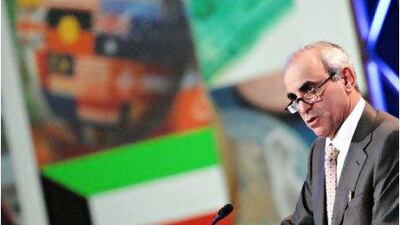The Kuwait Petroleum Corporation (KPC), the national oil company of the seventh-largest OPEC oil producer, is signalling renewed determination to get the state's stalled energy programme back in gear.
It is not entirely up to the company, as the Kuwait Supreme Petroleum Council, its cabinet and fractious parliament must all agree if any big projects are to move ahead.
Nevertheless, KPC this month unveiled a US$90 billion (Dh330.57bn), five-year investment programme aimed at relaunching upstream and downstream oil and gas projects that include new field developments, enhanced oil recovery and refinery construction. Most have languished on the drawing board for a decade or more, the victims of long-running parliamentary disputes.
Following a recent changing of the guard, KPC is now led by Farouk al Zanki, a veteran petroleum engineer who formerly headed Kuwait Oil Company, the upstream arm of the state petroleum company. He was named chief executive of KPC in September, succeeding Saad al Shuwaib, who had held the post since 2007, capping a long career in KPC's refining and petrochemicals division.
A decree enacted just a week ago formalised Mr al Zanki's position as KPC's new chief, about six months after the Supreme Petroleum Council, which sets energy policy in Kuwait, informed Mr al Shuwaib that his three-year term would not be renewed.
"We are serious about the implementation of the ambitious strategy to meet the growing demand for energy on the local and global markets," Mr al Zanki said this month on the sidelines of a development conference in Kuwait. "The corporation's targeted production capacity for 2020 is projected at 4 million barrels of oil a day (bpd)."
He estimated Kuwait's current output capacity at 3.3 million bpd, exceeding the UAE's capacity by almost 14 per cent. Both Gulf oil exporters, however, have recently pumped about 2.4 million bpd of oil, including natural gas condensate, with the UAE marginally in the lead.
Mr al Zanki said a large part of KPC's budget next year for energy development had been ear-marked for oil developments, including major projects to boost output capacity from the emirate's neglected northern oilfields and a hoped-for relaunch of a strategic $16bn project to build Kuwait's fourth oil refinery. He said KPC was ready to provide the petroleum council with any information that would allow the council to tender the refinery project's main contracts.
Due to the "constant tug of war" between Kuwait's cabinet, appointed by the country's emir, and its elected parliament, however, KPC has seldom been able to spend all of its budget, says Samuel Ciszuk, the senior Middle East energy analyst at IHS Global Insight.
One of Mr al Zanki's chief unofficial tasks will therefore be to defuse conflicts between KPC and parliamentarians who distrusted his predecessor. One problem is that many members of Kuwait's parliament do not approve of foreign involvement in the country's petroleum sector. The technocrats at KPC, on the other hand, including Mr al Zanki, regard gaining access to the advanced technology of international oil companies as essential.
A more central problem is that under Kuwait's constitution, parliament has no direct say in oil policy. The oil ministry, currently headed by Sheikh Ahmad Al Sabah, a prominent member of the Kuwaiti Royal Family, is primarily a regulatory body that, in its own words, exists to assist the extra-parliamentary supreme petroleum council in supervising and implementing the council's decisions.
"The oil wealth is the backbone of the national economy and the main source of income," the ministry goes on to state in a strategy document posted on its website.
Parliament's distrust of the arrangement has for years held up economic development.
"While most sectors in Kuwait have suffered from the general political deadlock of the last decade, the oil sector has in particular been targeted by parliamentarians trying to extend the powers of their body over the industry," says Mr Ciszuk. "The parliament has used other oversight abilities and powers to put spokes in the wheel of government-launched upstream and downstream development plans."
Those abilities include powers to instigate anti-corruption investigations and enforce transparency in the public tendering process for development projects.
The resulting "climate of fear in the state industry bureaucracy", says Mr Ciszuk, has dissuaded the managers of KPC and it operating units from "taking ownership of initiatives and projects", compounding the standstill.
Can Mr al Zanki help break the deadlock, enabling Kuwait to start catching up with GCC neighbours that are far ahead in their oil development programmes, even as Iraq embarks on a raft of energy projects?
Mr Ciszuk sees a chance for this, as Kuwait's parliamentary squabbling has eased in the past year, but he remains sceptical. "With Kuwait's oil and gas project history for the last 15 years having been dominated by aborted attempts, confidence on all sides is low and no one is likely to celebrate until the first projects actually start to get under way," he says.
"Little real institutional or legal change has actually taken place and the political mood swings are likely to continue."
Some analysts, however, are more optimistic. Edmund O'Sullivan, the chairman of MEED, the Middle East-focused business intelligence group, says KPC's investment plan is part of a wider government push to develop $200bn of vital infrastructure projects in the next five years.
For Kuwait, he says, "there is now no choice".
"Without more power stations, water desalination capacity and sewage treatment plants, basic services will fail. … Daily life will, in due course, become almost impossible."

